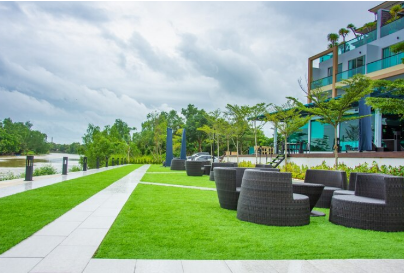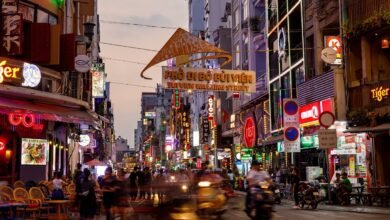Water-Wise Wonders: Smart Strategies for Landscaping in Dubai’s Climate

Dubai, a city renowned for its innovation and ambition, has long grappled with the challenge of sustainable landscaping in a desert climate. With scorching temperatures and limited freshwater resources, traditional landscaping practices are not only impractical but also unsustainable. However, through the adoption of water-wise strategies and innovative technologies, Dubai has emerged as a global leader in sustainable landscaping, demonstrating how to thrive in harmony with nature in one of the world’s harshest environments. For more information check out best landscape design and construction in dubai
Embracing the Desert Landscape
Dubai’s approach to sustainable landscaping begins with a deep appreciation for the unique beauty and resilience of the desert ecosystem. Rather than attempting to replicate lush, water-intensive gardens, the city celebrates the arid landscape, incorporating native plants and adapting design principles to suit the harsh climate.
Key Strategies for Water-Wise Landscaping
Dubai’s water-wise landscaping strategies prioritize conservation, efficiency, and environmental stewardship. Here are some smart approaches that have proven successful in transforming the city’s outdoor spaces:
1. Native and Drought-Tolerant Plants:
By selecting native and drought-tolerant plant species, Dubai minimizes water consumption while maintaining vibrant greenery. Palms, succulents, and desert-adapted shrubs thrive in the arid climate, requiring minimal irrigation and maintenance. These plants not only conserve water but also contribute to the biodiversity of the landscape, attracting local wildlife and enhancing ecological resilience.
2. Xeriscaping Techniques:
Xeriscaping, a water-efficient landscaping method, is central to Dubai’s sustainable design ethos. Through strategic mulching, soil conditioning, and efficient irrigation systems, xeriscaping minimizes water waste and promotes healthy plant growth. Drip irrigation, in particular, delivers water directly to the roots, reducing evaporation and runoff. By optimizing water distribution, xeriscaping ensures that every drop counts in the arid landscape.
3. Smart Irrigation Systems:
Dubai harnesses the power of technology to maximize water efficiency in its landscapes. Smart irrigation systems, equipped with sensors and automated controls, monitor soil moisture levels, weather conditions, and plant water needs in real-time. By delivering water precisely where and when it is needed, these systems minimize overwatering and ensure optimal plant health while conserving precious resources.
4. Sustainable Hardscaping:
In addition to vegetation, Dubai’s sustainable landscaping practices extend to hardscape elements such as paving, decking, and pathways. Permeable surfaces allow rainwater to infiltrate the soil, replenishing groundwater supplies and reducing stormwater runoff. Sustainable materials such as recycled aggregates and porous paving further minimize environmental impact, creating functional and eco-friendly outdoor spaces.
A Model for Arid Climate Landscaping
Dubai’s success in water-wise landscaping serves as a model for regions facing similar climatic challenges around the world. By embracing native flora, employing efficient irrigation techniques, and integrating sustainable design principles, cities can create resilient landscapes that thrive in harmony with their surroundings.
Conclusion
In Dubai, water-wise landscaping is not just a necessity—it’s a testament to human ingenuity and environmental responsibility. By reimagining the desert landscape as a source of inspiration and innovation, the city has transformed its outdoor spaces into thriving, sustainable oases. As the world confronts escalating water scarcity and climate change, Dubai’s smart strategies for landscaping offer hope and guidance for a more sustainable future, where water-wise wonders flourish in even the most challenging environments.







